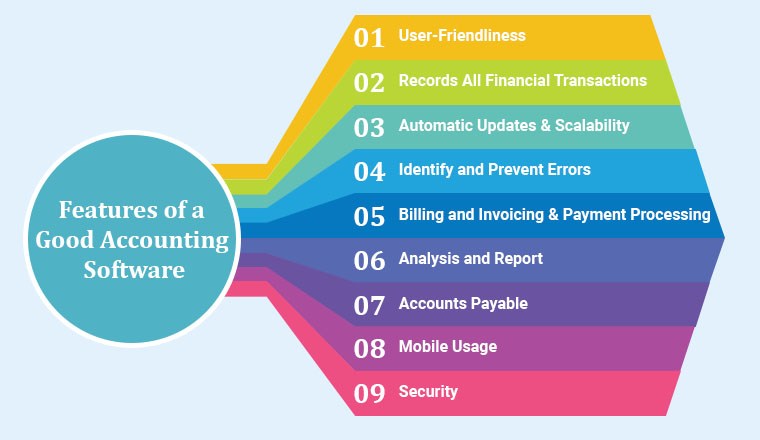As a contractor, managing finances is a crucial aspect of running a successful business. From tracking expenses and invoicing clients to managing payroll and tax compliance, accounting software can help contractors streamline their financial management and focus on what they do best – delivering high-quality projects. In this article, we will explore the benefits of accounting software for contractors, key features to consider, and some popular options available in the market.

Benefits of Accounting Software for Contractors
Accounting software can bring numerous benefits to contractors, including:
- Improved Efficiency: Automated accounting processes can save contractors a significant amount of time, reducing the need for manual data entry and minimizing errors.
- Enhanced Accuracy: Accounting software can help contractors ensure accuracy in financial reporting, reducing the risk of errors and discrepancies.
- Better Financial Visibility: With real-time financial data, contractors can make informed decisions about their business, including budgeting, forecasting, and cash flow management.
- Simplified Invoicing and Payment Tracking: Accounting software can help contractors create professional-looking invoices and track payments, reducing the risk of late or missed payments.
- Compliance with Tax Regulations: Accounting software can help contractors stay up-to-date with tax regulations and ensure compliance, reducing the risk of fines and penalties.
Key Features to Consider
When selecting accounting software for their business, contractors should consider the following key features:
- Invoicing and Payment Tracking: The ability to create professional-looking invoices and track payments is essential for contractors.
- Expense Tracking: Contractors need to track expenses, including labor, materials, and equipment, to ensure accurate costing and billing.
- Payroll Management: For contractors with employees, payroll management is a critical feature, including automatic calculations of taxes and benefits.
- Tax Compliance: Accounting software should be able to handle tax compliance, including sales tax, payroll tax, and other regulatory requirements.
- Financial Reporting: Contractors need access to real-time financial data, including balance sheets, income statements, and cash flow statements.
- Project Management: Some accounting software offers project management features, including job costing, time tracking, and project scheduling.
- Integration with Other Tools: Contractors may need to integrate their accounting software with other tools, such as estimating software, scheduling software, or customer relationship management (CRM) software.
Popular Accounting Software Options for Contractors
Some popular accounting software options for contractors include:
- QuickBooks: A comprehensive accounting software that offers a range of features, including invoicing, expense tracking, and payroll management.
- Xero: A cloud-based accounting software that offers real-time financial data, automated invoicing, and expense tracking.
- Sage: A robust accounting software that offers advanced features, including project management, job costing, and tax compliance.
- FreshBooks: A user-friendly accounting software that offers invoicing, expense tracking, and time tracking features.
- Zoho Books: A cloud-based accounting software that offers a range of features, including invoicing, expense tracking, and inventory management.
FAQs
Q: What is the best accounting software for contractors?
A: The best accounting software for contractors depends on their specific needs and requirements. Popular options include QuickBooks, Xero, Sage, FreshBooks, and Zoho Books.
Q: Can I use accounting software for my small contracting business?
A: Yes, accounting software can be used by small contracting businesses to streamline financial management and improve efficiency.
Q: Is accounting software expensive?
A: The cost of accounting software varies depending on the provider and the features required. Some accounting software options offer free trials or basic plans, while others may require a monthly or annual subscription.
Q: Can I integrate my accounting software with other tools?
A: Yes, many accounting software options offer integration with other tools, such as estimating software, scheduling software, or customer relationship management (CRM) software.
Q: Is accounting software secure?
A: Yes, reputable accounting software providers prioritize security and offer features such as data encryption, two-factor authentication, and regular backups to protect sensitive financial data.
Conclusion
Accounting software is a vital tool for contractors, helping them streamline financial management, improve efficiency, and reduce errors. By considering key features such as invoicing and payment tracking, expense tracking, payroll management, and tax compliance, contractors can select the best accounting software for their business needs. With popular options like QuickBooks, Xero, Sage, FreshBooks, and Zoho Books, contractors have a range of choices to suit their budget and requirements. By investing in accounting software, contractors can focus on delivering high-quality projects and growing their business, while leaving financial management to the experts. Whether you are a small contracting business or a large enterprise, accounting software can help you achieve financial success and stay ahead of the competition.
Closure
Thus, we hope this article has provided valuable insights into The Importance of Accounting Software for Contractors: Streamlining Financial Management. We hope you find this article informative and beneficial. See you in our next article!